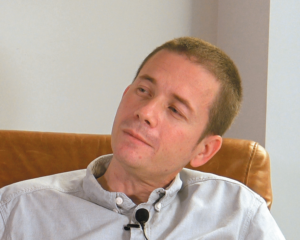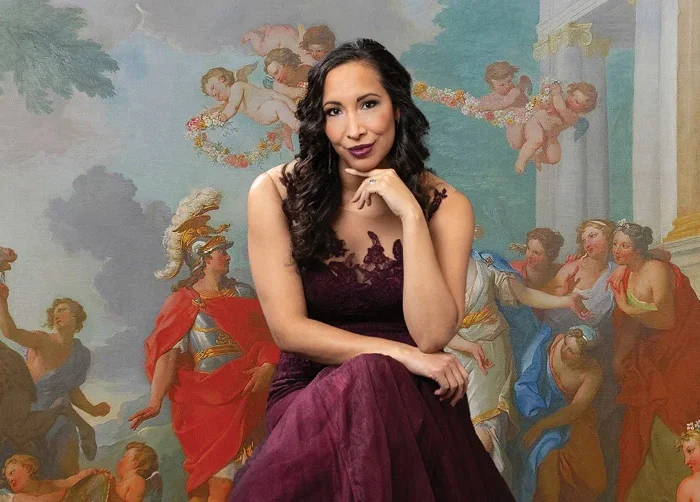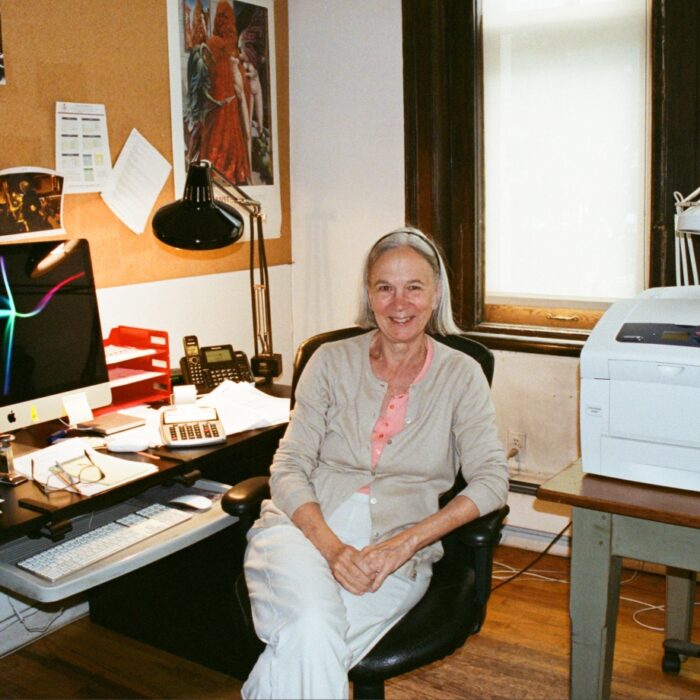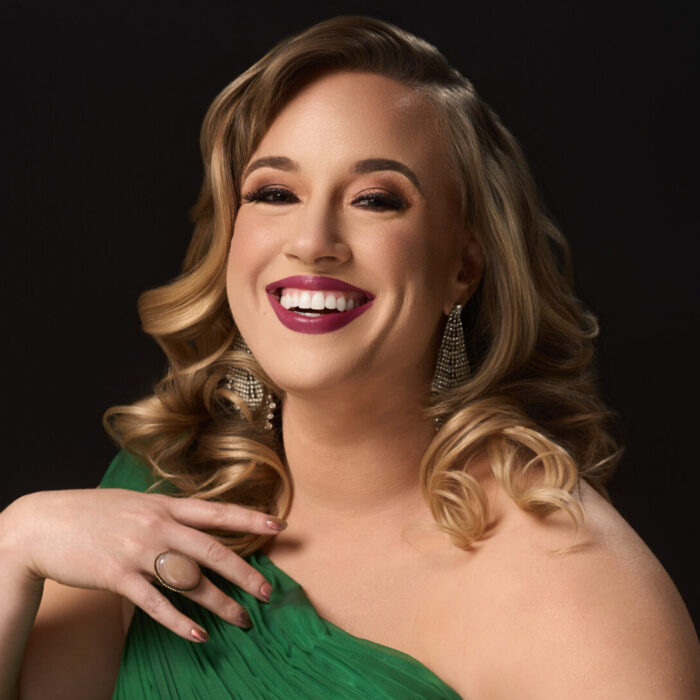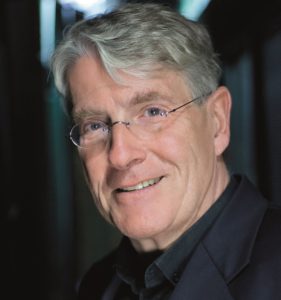
Q & A: Intendant Thomas Bockelmann On COVID-19 Safety Protocols at Staatstheater Kassel
By Dejan Vukosavljevic(Photo Credit: Staatstheater Kassel)
When COVID-19 spread quickly across the globe earlier this year, the entire opera world was forced into a lengthy shutdown. And despite continued concerns over the deadly virus, companies slowly found ways to return to some degree of normalcy.
Thomas Bockelmann, the Intendant of the Staatstheater Kassel, took on this challenge head-on and recently spoke to OperaWire about the rules and regulations his company is implementing to ensure safety throughout the organization.
OperaWire: When the COVID-19 pandemic struck in March 2020, you were forced to cancel all of your performances until the rest of the season. Do you plan to reschedule those performances for the coming seasons?
Thomas Bockelmann: In fact, we already did that. When the pandemic struck and our theater was ordered to close, we only had left one more performance of Wagner’s “Götterdämmerung“ to complete the second round of the Ring cycle. Alas, it had to be canceled. We were not able to present that final ring opera in the second cycle.
We had two more productions that we had scheduled until the end of the 2019-20 season. We are talking about “L’Ultimo Sogno,” based on Verdi’s “La Traviata,” and Rossini’s “La Cenerentola.” We were able to move these two productions to the beginning of the 2020-21 season. Both productions are already underway. Our next big premiere is “La Tragédie de Carmen,” with the premiere date on December 12, 2020. That will be the very reduced version of Bizet’s opera “Carmen.”
OW: How did you undertake the reopening process?
TB: We obviously had to restart the performances very carefully. That also implies that we probably will not have performances with intermission. You see, intermissions are always a problem in these types of situations. You have to get people in and out of the auditorium, and there is always a danger of close contact. Spectators are crossing their paths, and that takes a lot of time. We will opt for the safe solution.
OW: Testing for the presence of COVID-19 proved to be a very important step in providing a safe environment for staged productions. Tell us more about testing at your theater.
TB: I will be totally sincere with you. We don’t test at all. However, we have a very stringent set of measures in order to prevent COVID-19 infections in our theater. We have scientific advisers, doctors who provide their advice on a regular basis, so we proceed accordingly.
First off, we have the rule of mandatory wearing of face masks. Also, we do keep the mandatory distance. We only do the testing if we realize that someone from the theater – an artist, or an employee – has been in close contact with someone who has COVID-19. In those cases, COVID-19 PCR testing must be absolutely carried out. Then we test immediately, without any delay.
Let me give you an example. One singer in the production of “La Cenerentola” was in close contact with the person that was COVID-19 positive. He immediately took the train to the Frankfurt Airport, where they provide the very fast and reliable PCR testing. The test came back negative, so the rehearsals were allowed to resume.
OW: Tell us more about social distancing protocols at your theater. What are singers going to do both during the rehearsals and performances?
TB: The minimum mandatory distance is three meters. In case when singers sing in the direction of each other, then the mandatory distance is six meters. The same thing is with the chorus.
The chorus is never onstage. They are positioned in the lodges and the second balcony, so they never have any contact with the singers or the orchestra. Such a pattern enables mandatory distancing. For example, we have a 12-member chorus in both “L’Ultimo Sogno” and “La Cenerentola.”
OW: Do you see the absence of mandatory testing as a shortcoming that might backfire?
TB: You see, the first such protocol was carried out in Salzburg, at the Salzburg Festival. However, please bear in mind that that was a festival – all the performers were guests, and they were staying in one hotel. And those were almost quarantine conditions. You can not have that kind of protocol when it comes to the usual repertoire in the theater.
Honestly, testing gives you an illusion of being secure, but the next day you can meet somebody who has COVID-19, you get it and the test does not help. If you want to be absolutely sure, you would have to test once or twice daily. If there is any suspicion, we test immediately, and the person must be in the quarantine until the test results are known.
I see the bigger threat when singers come in close contact and are tested once a week, for example.
OW: So, let’s go back to the case of “La Tragédie de Carmen.” In that production, you have 4 singers on stage. Do they never come in close contact?
TB: That is correct. We absolutely follow the social distancing rules of three meters and six meters. Of course, we always try to find the staging solutions that make the production credible, but without breaking the safety rules. And that works really very well in both “L’Ultimo Sogno” and “La Cenerentola.” The bottom line is that artistic solutions can obviously be found, and we are working tirelessly to achieve that artistic goal, while still maintaining the mandatory distance.
OW: Singers and performers in general are obviously faced with the risk in cases of close social interactions. Besides social distancing, in which ways do you help them to feel secure and protected?
TB: Our singers are longing to perform. Secondly, we have 940 maximum seating capacity in our house. We are currently allowed to admit only 240 spectators, so that is 25 percent of the seating capacity. The feeling is different, and there is less resonance. But the seats that we are allowed to sell, do get sold out relatively quickly.
We take good care of what we do and how we do it. Members of the audience are required to wear face masks and are only allowed to take them off while seating for the performance. Members of the orchestra are also required to wear face masks.
I think that it is very sad that the Metropolitan Opera decided to cancel the whole 2020-21 season. I still have a feeling that something could have been done to avoid such a scenario. However, I do understand that was not economically feasible to do.
The European way is a lot different. German, Austrian, and Swiss opera houses are really privileged in that way. We have enough funding and governmental support, so we are able to proceed while still respecting the safety rules.
OW: Good ventilation is a big part of the safety strategy. Tell us more about the ventilation at the Staatstheater Kassel.
TB: We have a very good technical solution regarding the ventilation. Our ventilation is vertical, like in the airplane. The experts have told me that it is very good overall. So, if there is no lateral movement of the air, then the ventilation system sucks up the aerosols vertically. We also have very good ventilation in our rehearsal rooms.
OW: For the end of the season you are planning the revival of the Wagner’s Ring cycle. With the exception of “Das Rheingold,” the operas in the cycle last for a very long time and practically require two intermissions. What is your plan for the Ring cycle?
TB: The Ring cycle is a very ambitious project, as I am sure you’re aware of. As it requires a heavy orchestration, that would imply around 90 musicians in the orchestra pit. We are not allowed to do that. The maximum number of musicians that are allowed to be in the orchestra pit is 28 at the moment. So, that is obviously the first big obstacle.
The second thing is the number of statists onstage, which is over 120 in the productions of “Das Rheingold” and “Götterdämmerung.“ It is quite obvious that such a large number of people on stage would be in close contact. That is not allowed, and it will not work.
I don’t want to make this decision officially right now, as the Ring cycle is scheduled for April and May 2021. However, I am a realistic man, and I am very skeptical of the possibility to have a staged version of the cycle. An alternative would be obvious to perform a concert version of the Ring cycle. Our stage is large enough, so putting the whole orchestra and singers onstage would completely work while maintaining the mandatory distance.
In my view, a miracle would have to happen to allow us to perform under normal conditions in April 2021. And we have a good tradition – we are the only theater in Germany that has had five full Ring cycles since 1961. Kassel is actually a Wagnerian city.
You know this is my last season as the Intendant of the Staatstheater Kassel. For every intendant, this is a nightmare, but we just have to accept reality and find the solutions.
We have been very fortunate up to now, and that is yet another proof that our safety measures work. Over 500 people are working in this theater, and we haven’t had a single case of COVID-19 up to now. What is also very important, from the epidemiological side of view, is that Kassel is not a COVID-19 hotspot at all at the moment. We have a peaceful epidemiological situation.
OW: We all hope for the best, but the situation can quickly change. What are your contingency plans?
TB: I believe that we will not have a normal situation until we have an effective vaccine or a medication for COVID-19. I also believe that we will not have a second full lockdown in Germany, as we have learned a lot from the first lockdown. I am very optimistic about that perspective. Obviously, we are not prophets, and we will be ready for different scenarios.
